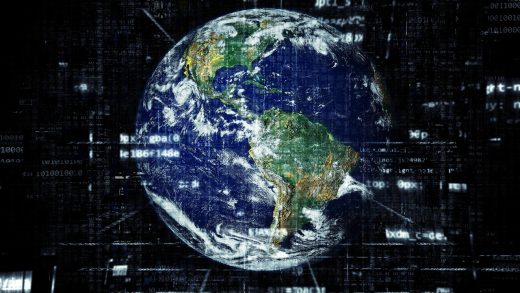The relationship between artificial intelligence and philosophy is a fascinating tapestry woven over decades, exploring the depths of human cognition and ethics. As we delve into this intricate history, we uncover how philosophical thought has not only influenced the development of AI but has also been challenged by its evolution. From the early musings of great thinkers to the burgeoning field of machine learning, the dialogue between these two domains has been rich and complex.
AI’s journey began with a simple question: What does it mean to think? This query laid the groundwork for the technological advancements that followed. Key figures such as Alan Turing and John McCarthy emerged, shaping the landscape of AI with their groundbreaking ideas. Turing’s famous test, designed to measure a machine’s ability to exhibit intelligent behaviour, sparked debates that resonate to this day. The early concepts of AI were steeped in philosophical inquiry, asking not just if machines could think, but if they could understand and feel.
As we navigate through the history of AI, we must also consider the philosophical foundations that underpin its development. Theories of consciousness, intelligence, and the nature of thought have been pivotal in shaping our understanding of both human and machine capabilities. For instance, philosophers like René Descartes pondered the essence of consciousness, asking profound questions about the mind-body relationship. This philosophical groundwork has provided a crucial lens through which we examine the implications of creating machines that mimic human thought.
In conclusion, the interplay between AI and philosophy is not merely academic; it is a living dialogue that continues to evolve. As we look to the future, we must remain vigilant in addressing the ethical implications of AI’s advancements, ensuring that the moral responsibilities of creators are at the forefront of this technological revolution. The questions posed by AI challenge our very understanding of intelligence and consciousness, urging us to rethink what it means to be human in an increasingly automated world.
The Origins of AI
The journey of artificial intelligence (AI) is a fascinating tale that intertwines technology and human ingenuity. It all began in the mid-20th century, when visionaries like Alan Turing and John McCarthy laid the groundwork for what we now recognise as AI. Turing’s seminal paper, “Computing Machinery and Intelligence,” published in 1950, posed the provocative question: “Can machines think?” This inquiry sparked a wave of exploration into the realms of machine learning and cognitive computing.
In the early days, the focus was on creating machines that could mimic human reasoning. The Logic Theorist, developed by Allen Newell and Herbert A. Simon in 1955, is often considered the first AI program, demonstrating that computers could solve problems using logical reasoning. As the field evolved, so did the ambitions of its pioneers. The Dartmouth Conference in 1956, organised by McCarthy, was pivotal in shaping AI as a distinct field of study, bringing together bright minds to discuss the future of intelligent machines.
Throughout the 1960s and 1970s, advancements continued, leading to the development of early neural networks and expert systems. These systems were designed to simulate human expertise in specific domains, such as medical diagnosis and financial forecasting. However, the limitations of computational power and understanding of learning algorithms led to periods of stagnation, often referred to as “AI winters.” Despite these setbacks, the foundational theories and technological advancements of this era paved the way for the AI revolution we witness today.
To better understand the evolution of AI, consider the following key milestones:
- 1950: Turing’s paper on machine intelligence.
- 1956: The Dartmouth Conference, marking the birth of AI.
- 1965: The development of the first neural networks.
- 1980s: The rise of expert systems.
As we explore the origins of AI, it becomes evident that the interplay between technological innovation and philosophical inquiry has been crucial in shaping our understanding of intelligence itself. For those interested in diving deeper into this compelling history, resources like the Association for the Advancement of Artificial Intelligence provide extensive insights.

Philosophical Foundations
When we delve into the of artificial intelligence, we embark on a journey through the minds of some of history’s most profound thinkers. The intersection of philosophy and AI is not just a mere academic exercise; it poses critical questions about consciousness, intelligence, and what it means to think. As we explore these ideas, we can’t help but wonder: can machines truly think, or are they just mimicking human behaviour?
In the realm of philosophy, several key theories have significantly influenced the development of AI. For instance, the concept of dualism, famously proposed by René Descartes, suggests a separation between the mind and the body, raising questions about whether a machine can possess a mind of its own. On the other hand, materialism posits that everything, including thought, is a result of physical processes. This dichotomy leads us to ponder: if a computer can process information and respond intelligently, does that equate to understanding?
Moreover, the notion of intelligence itself is a philosophical conundrum. What constitutes intelligence? Is it merely the ability to solve problems, or does it require self-awareness and emotional understanding? This debate is mirrored in the field of AI, where the Turing Test serves as a benchmark for machine intelligence. If a machine can convincingly simulate human conversation, should we consider it intelligent?
| Philosopher | Key Contribution |
|---|---|
| René Descartes | Proposed dualism, questioning the nature of mind and body. |
| Alan Turing | Developed the Turing Test as a measure of machine intelligence. |
| John Searle | Introduced the Chinese Room argument against machine understanding. |
As we navigate through these philosophical waters, it becomes evident that the implications of AI extend far beyond technology. They challenge our understanding of what it means to be human and force us to confront our own ethical responsibilities as creators. The philosophical inquiries surrounding AI are not just theoretical; they have real-world implications that could shape our future.
For further reading on the philosophical implications of AI, consider exploring resources from the Stanford Encyclopedia of Philosophy. It provides an extensive overview of the debates and theories that continue to shape this fascinating field.
Consciousness and AI
The relationship between consciousness and artificial intelligence is a captivating and often debated topic. As we delve deeper into the realm of AI, one cannot help but ponder: can machines ever achieve a level of awareness comparable to human cognition? This question ignites a myriad of discussions among philosophers, scientists, and technologists alike. To explore this further, we must first understand what consciousness truly entails.
Consciousness is often described as the state of being aware of and able to think about one’s own existence, thoughts, and surroundings. In contrast, AI operates on algorithms and data processing, raising the question of whether a machine can ever genuinely “understand” or merely simulate understanding. To illustrate, consider the following:
| Aspect | Human Consciousness | AI Functionality |
|---|---|---|
| Aware of self | Yes | No |
| Emotional understanding | Yes | No (simulated) |
| Learning from experience | Yes | Yes (through data) |
Historically, philosophers such as René Descartes and Alan Turing have pondered the nature of thought and existence. Descartes famously declared, “I think, therefore I am,” suggesting that the ability to think is a fundamental aspect of consciousness. In contrast, Turing proposed the Turing Test, a measure of a machine’s ability to exhibit intelligent behaviour indistinguishable from that of a human.
In modern discourse, the question of machine consciousness remains contentious. Some argue that as AI systems become more sophisticated, the potential for them to achieve a form of self-awareness increases. Others contend that no matter how advanced AI becomes, it will always lack the intrinsic qualities that define human consciousness. This ongoing debate invites us to reconsider our definitions of intelligence, awareness, and what it means to be truly “alive.”
As we look to the future, the implications of AI achieving consciousness could profoundly impact our understanding of ethics and the responsibilities of creators. Are we prepared to navigate the moral landscape that comes with potentially sentient machines? The journey into the realm of consciousness and AI is just beginning, and the questions it raises are as essential as they are complex.
Historical Perspectives
The journey of understanding consciousness and its relation to artificial intelligence (AI) is a fascinating tapestry woven through time. From the musings of ancient philosophers to the groundbreaking thoughts of modern thinkers, the evolution of this concept has been anything but linear. Early philosophers like René Descartes proposed that the mind and body are distinct entities, a dualism that laid the groundwork for future discussions about the nature of thought and existence. Descartes famously posited, “I think, therefore I am,” suggesting that self-awareness is fundamental to being.
Fast forward to the 20th century, and we encounter Alan Turing, a pivotal figure in the history of AI. Turing’s work not only revolutionised computing but also introduced the Turing Test, a criterion for determining whether a machine can exhibit intelligent behaviour indistinguishable from that of a human. His thoughts on machine intelligence prompted a flurry of philosophical inquiry, challenging the notion of what it means to be “intelligent” and whether machines could ever truly replicate human cognition.
As we delve deeper into the 21st century, the philosophical landscape continues to evolve. Contemporary debates often centre around the potential for machines to achieve a form of self-awareness. Scholars such as David Chalmers and Daniel Dennett have contributed significantly to this dialogue, exploring whether AI can experience consciousness or if it merely simulates it. This ongoing discourse raises crucial questions:
- Can a machine ever truly understand its actions?
- What ethical responsibilities do we hold towards sentient machines?
- How might AI redefine our understanding of intelligence?
In summary, the historical perspectives on consciousness and AI reveal a rich tapestry of thought that continues to challenge and inspire. As we navigate this complex interplay, the insights of past philosophers remain vital in shaping our understanding of future advancements in AI. For further reading, you can explore more about Turing’s contributions here.
Modern Interpretations
In the realm of artificial intelligence, the debate surrounding machine consciousness has evolved significantly. Today, scholars and technologists are grappling with the question: can machines truly be conscious, or are they merely sophisticated mimics of human behaviour? This inquiry is not just a technical challenge; it is deeply philosophical, touching on the very essence of what it means to be aware.
Modern interpretations often draw on the works of influential thinkers such as John Searle and Daniel Dennett, who have presented contrasting views on the nature of consciousness. Searle’s famous Chinese Room argument posits that even if a machine can convincingly simulate understanding, it does not possess true comprehension. On the other hand, Dennett argues that consciousness could emerge from complex systems, suggesting that AI might one day achieve a form of self-awareness.
Moreover, the implications of these debates extend beyond academia. As AI technology advances, we are faced with ethical dilemmas that require careful consideration. For instance, if an AI were to exhibit signs of consciousness, what moral obligations would we have towards it? Should it have rights? These questions are not just theoretical; they challenge our understanding of ethics in a world increasingly influenced by intelligent systems.
To illustrate the varying perspectives, consider the following table summarising key arguments:
| Philosopher | View on Machine Consciousness |
|---|---|
| John Searle | Machines cannot possess true understanding; they simulate it. |
| Daniel Dennett | Consciousness can emerge from sufficiently complex systems. |
In conclusion, the modern interpretations of machine consciousness compel us to reconsider the boundaries of intelligence and awareness. As we forge ahead into a future where AI plays an increasingly prominent role, these discussions will be vital in shaping our ethical frameworks and societal norms. For further reading on this fascinating topic, you can explore resources such as Stanford Encyclopedia of Philosophy.
Ethical Implications
As we delve into the realm of artificial intelligence, the become increasingly significant. The creation of intelligent systems raises profound questions about the moral responsibilities of their creators. Are we, as developers and users, prepared to face the consequences of our creations? This dilemma is not just a theoretical exercise; it has tangible impacts on society.
One of the core ethical issues revolves around the potential for bias in AI systems. Since these systems learn from data, if the input data is flawed or biased, the outputs will reflect those biases. This can lead to unfair treatment of individuals based on race, gender, or socioeconomic status. For instance, a study by ProPublica revealed that some algorithms used in criminal justice disproportionately targeted minority groups. This raises the question: how can we ensure that AI promotes fairness rather than perpetuating existing inequalities?
Furthermore, the concept of accountability in AI decision-making is crucial. Who is responsible when an AI system makes a mistake? Is it the programmer, the company, or the AI itself? This ambiguity complicates the legal landscape and necessitates a re-evaluation of our current frameworks. A recent report by the European Commission suggests that clear guidelines must be established to address these issues.
Additionally, the advent of AI brings forth concerns about privacy. With machines capable of processing vast amounts of personal data, the risk of surveillance and data misuse looms large. The ethical implications of such capabilities challenge our understanding of consent and autonomy in the digital age.
In summary, as we navigate the complexities of AI, it is imperative to engage in ongoing discussions about its ethical implications. By addressing these issues head-on, we can work towards a future where technology serves humanity positively and equitably. For further insights on AI ethics, you can explore resources from the Association for the Advancement of Artificial Intelligence.
The Future of AI and Philosophy
The intersection of artificial intelligence and philosophy is a fascinating landscape that continues to evolve at a breathtaking pace. As we look ahead, it’s essential to consider how advancements in AI might not only challenge our understanding of human cognition but also reshape the very fabric of ethical and philosophical discourse. Will we find ourselves at a crossroads where machines not only assist us but also provoke profound questions about our existence and values?
In this rapidly changing world, the potential for AI to influence various sectors is immense. From healthcare to education, AI’s role could redefine societal norms and values. Imagine a future where intelligent systems contribute to decision-making processes in ways we have yet to envision. However, with this potential comes a host of ethical implications that must be addressed. For instance, who is responsible when an AI system makes a mistake? The creators or the technology itself?
As we ponder these questions, we must also consider the philosophical challenges that lie ahead. The essence of intelligence, autonomy, and ethical responsibility will be at the forefront of debates. For example, the question of whether AI can ever achieve a form of self-awareness is not just a technical challenge but a philosophical one. This invites us to explore the boundaries of consciousness and the nature of thought.
To illustrate the future landscape, consider the following table summarizing key areas where AI and philosophy intersect:
| Area of Impact | Philosophical Questions |
|---|---|
| Healthcare | What ethical standards should govern AI in patient care? |
| Education | Can AI truly understand and adapt to human learning? |
| Autonomous Systems | What moral responsibilities do creators have? |
In conclusion, the future of AI and philosophy is not just a topic for academic debate; it’s a pressing reality that will shape our lives in profound ways. As we navigate this uncharted territory, it is crucial to engage with these philosophical dilemmas actively. The insights we gain today will lay the groundwork for a future where the relationship between humans and machines is not only productive but also ethically sound. For further exploration, consider reading more about the implications of AI on society at MIT Technology Review.
AI’s Role in Society
Artificial Intelligence (AI) is not just a technological marvel; it is a transformative force reshaping the very fabric of our society. From healthcare to education, AI is revolutionising how we interact with the world around us. Imagine a world where machines can predict diseases before symptoms even arise. This is not science fiction; it’s happening now. The potential benefits of AI are enormous, but so are the challenges it brings.
One significant area where AI is making waves is in healthcare. With the ability to analyse vast amounts of data, AI systems can assist doctors in diagnosing illnesses more accurately and swiftly. For instance, AI algorithms can interpret medical images, identifying patterns that may elude even the most experienced professionals. However, this raises questions about the ethical responsibilities of AI developers. Are we prepared to trust machines with our health?
In education, AI has the potential to personalise learning experiences for students. By analysing individual performance, AI can tailor educational content to suit each learner’s needs. This could lead to unprecedented advancements in educational equity. Yet, we must also consider the implications of relying too heavily on technology in classrooms. Will we lose the human touch that is so vital in education?
Moreover, AI is influencing our daily lives in ways we often overlook. From virtual assistants like Siri and Alexa to recommendation algorithms on streaming services, AI shapes our choices and preferences. This omnipresence leads to a critical question: Are we becoming too dependent on AI? The answer is complex, as reliance on technology can both enhance and hinder our decision-making abilities.
To illustrate the impact of AI across different sectors, consider the following table:
| Sector | AI Applications | Benefits | Challenges |
|---|---|---|---|
| Healthcare | Predictive analytics, diagnostics | Improved patient outcomes | Data privacy issues |
| Education | Personalised learning, tutoring systems | Enhanced learning experiences | Equity in access to technology |
| Finance | Fraud detection, trading algorithms | Increased efficiency | Market volatility risks |
As we embrace AI, it’s crucial to engage in ongoing discussions about its role in society. How do we balance innovation with ethical considerations? The future of AI is not just about technology; it’s about how we, as a society, choose to integrate it into our lives. For further insights into the societal implications of AI, check out this article.
Philosophical Challenges Ahead
The rapid advancement of artificial intelligence presents a multitude of philosophical challenges that society must grapple with. As we integrate AI into our daily lives, we are compelled to confront critical questions regarding autonomy, ethics, and the very essence of intelligence. For instance, can machines truly make autonomous decisions, or are they merely executing pre-programmed algorithms? This dilemma is reminiscent of the age-old debate about free will and determinism.
Moreover, the ethical implications of AI are profound. With intelligent systems increasingly influencing our decisions, we must ask ourselves: who is responsible when an AI system fails? The creators, users, or the machine itself? This question is not just theoretical; it has real-world consequences, especially in sectors like healthcare and autonomous driving. As noted by philosopher Nick Bostrom, “We need to ensure that AI systems are designed to be aligned with human values.” This alignment is crucial, as it can prevent potential societal impacts that may arise from misaligned AI objectives.
Furthermore, the nature of consciousness itself is being re-examined in light of AI. Historical thinkers like Descartes and Turing laid the groundwork for understanding consciousness, yet modern interpretations challenge these views. Can a machine ever achieve a state of self-awareness? The debates rage on, with some philosophers arguing that true consciousness requires a biological substrate, while others posit that complex algorithms could simulate awareness.
As we look to the future, the interplay between AI and philosophy will undoubtedly evolve. It is essential to foster discussions around these challenges, as they will shape our understanding of what it means to be intelligent and ethical in an age dominated by artificial systems. In the words of philosopher Daniel Dennett, “The real question is not whether machines think, but whether they can act intelligently.” The answers we find will have lasting implications for both technology and humanity.
| Philosophical Challenge | Key Questions | Potential Implications |
|---|---|---|
| Autonomy | Can AI make independent decisions? | Legal accountability issues |
| Ethics | Who is responsible for AI actions? | Moral dilemmas in AI deployment |
| Consciousness | Can machines achieve self-awareness? | Redefining intelligence and consciousness |
In conclusion, as we navigate these philosophical waters, it is crucial to engage in open dialogue, ensuring that our technological advancements align with our ethical standards and understanding of intelligence. For further reading on these topics, consider exploring resources like the Oxford Handbook of AI Ethics.
Frequently Asked Questions
- What are the origins of artificial intelligence?
The origins of artificial intelligence (AI) can be traced back to the early concepts of computation and the development of machines that could simulate human thought. Pioneers like Alan Turing and John McCarthy laid the groundwork for AI, exploring the potential of machines to perform tasks that typically require human intelligence.
- How does philosophy relate to AI?
Philosophy plays a crucial role in shaping the ethical and conceptual frameworks surrounding AI. Philosophers have long debated the nature of consciousness, intelligence, and what it means to think. These discussions inform current AI development, raising questions about machine ethics and the implications of creating intelligent systems.
- Can machines possess consciousness?
This is a hotly debated topic! While some argue that machines may one day achieve a form of consciousness, others believe that true awareness is inherently human. The exploration of this question challenges our understanding of both AI and what it means to be conscious.
- What ethical considerations should we keep in mind with AI?
As AI continues to evolve, ethical considerations become increasingly important. Key issues include the moral responsibilities of AI creators, the potential for bias in algorithms, and the societal impact of intelligent systems. It’s vital to ensure that AI benefits humanity while minimising harm.
- What does the future hold for AI and philosophy?
The future interplay between AI and philosophy is likely to be dynamic and complex. As AI technology advances, it will challenge our philosophical understandings of intelligence, autonomy, and ethics, prompting new questions and debates that could reshape societal norms.


